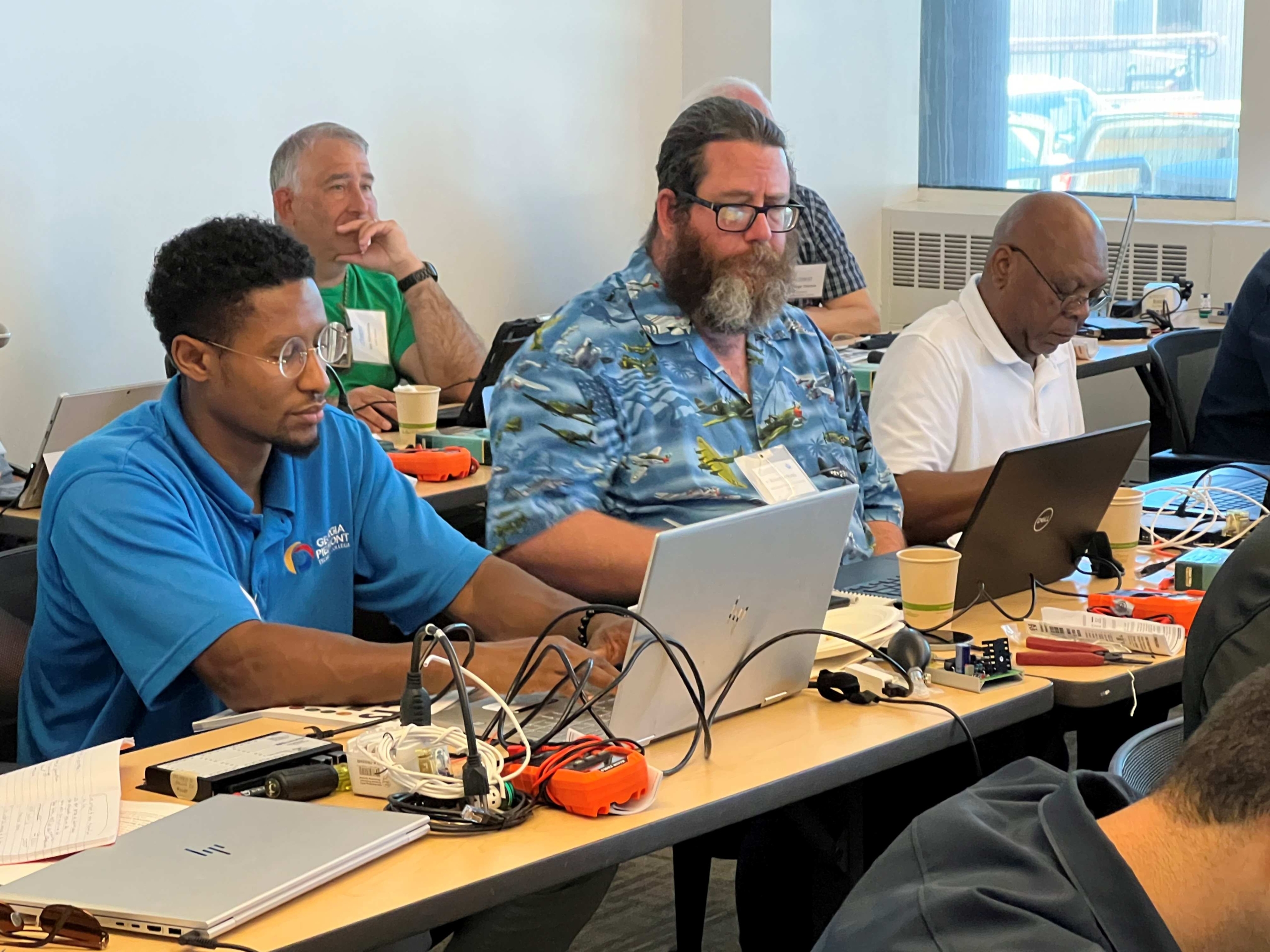As building automation continues to develop, advocating for advanced technical education and efficient building operations grows ever more important. To this end, the Building Efficiency for a Sustainable Tomorrow (BEST) Center hosted the 13th annual Building Automation Systems (BAS) workshop in Berkeley, CA from June 3-7. This event brought together 20 participants from two-year colleges, a university, and a skilled trades union across 12 states, with the goal of enhancing the knowledge and tools of educators as they teach the next generation of building automation professionals.
Exploring Building Automation Through Practical Training
Led by BEST Center Co-Principal Investigators Ted Wilinski and Robert Nirenberg, attendees participated in hands-on lessons at the Lawrence Berkeley National Lab (LBNL) and UC Berkeley’s Sutardja Dai Hall. The workshop covered BAS, networks that connect and automate building functions such as lighting, HVAC (heating, ventilation, and air conditioning), fire safety, and security. Participants were trained on everything from digital basics to advanced concepts in troubleshooting building systems.

The first three days of the workshop were dedicated to hands-on training at LBNL’s FLEXLAB test facility, where faculty experimented with energy-efficient building controls and observed how systems respond under real-world conditions. Topics included grid interactive efficient buildings, equipment resets, and proportional-integral-derivative (PID) loop tuning, the process of fine-tuning controls so building automation systems adapt smoothly to environmental shifts. The workshop also helped faculty develop creative strategies for teaching these complex concepts to their students.
“[There were] many benefits [including the] information, discussions, presentations, physical tours of living labs, building equipment, [and] BAS program/curriculum development…but the most important benefit is the people,” said an anonymous instructor. “All of us are in different stages, but we all want to do better for our industry and trade…being able to continue the conversation based on our interactions at this workshop is priceless.”
Furthering Building Automation Training for Facilities Professionals
In addition to the faculty BAS workshop, BEST Center and LBNL co-hosted two other training sessions funded by the Department of Energy this summer to advance building automation education. One was an online course for facility managers, offering 16 hours of training; the other was a hybrid program for building engineers on the fundamentals of building automation, such as controller programming and best practices.
BEST Center was founded in 2012 with funding from the National Science Foundation to support publicly-funded 2- and 4-year colleges with programs in heating, ventilation, air conditioning and refrigeration (HVAC/R), controls, building automation, and energy/facilities management. In 2021, BEST Center joined forces with CIEE and continues to advance professional workforce and leadership development nationwide.
Workshops such as these are an important part of its work in advancing building science and technician education and promoting better, more efficient building performance. Thank you to all the participants, guest speakers, and organizers for your contributions!

